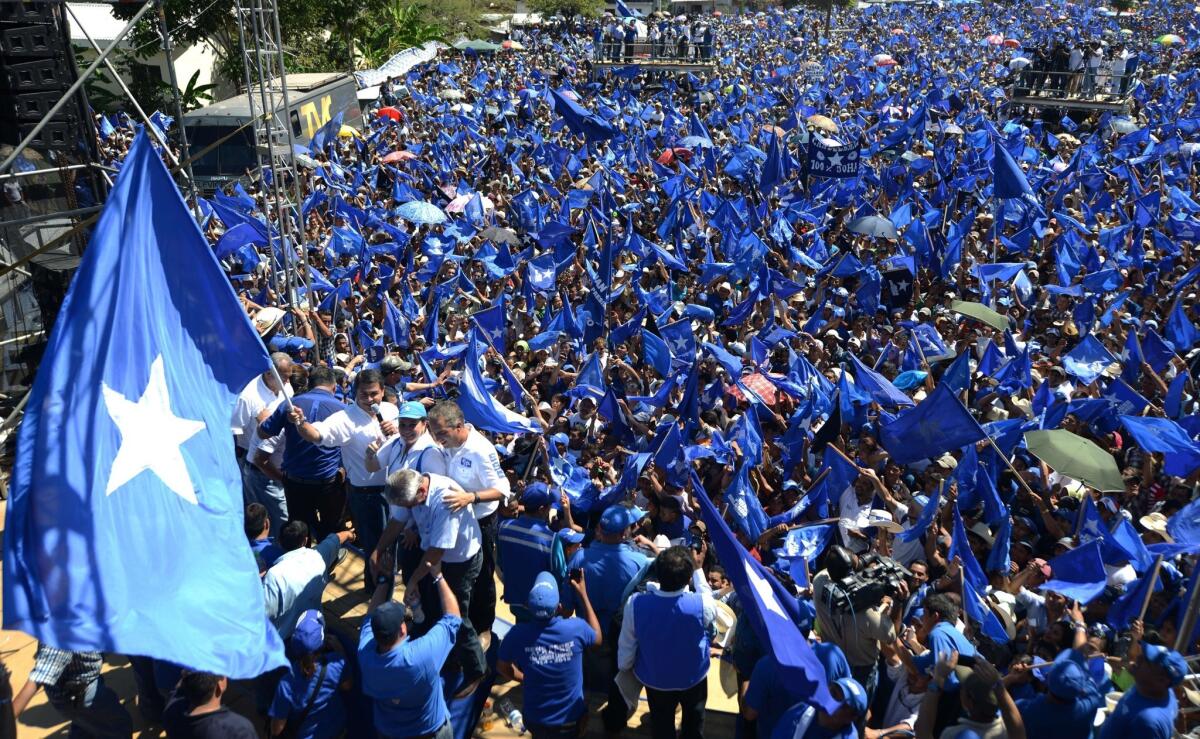In post-coup Honduras, rising poverty and inequality, report says

MEXICO CITY – Violence and political upheaval in Honduras in the four years since a military coup ousted the elected president have eroded the economy and expanded the gap between rich and poor, a new report concludes.
The report, due to be released Wednesday, comes three weeks before Honduras holds presidential elections in which the wife of the man ejected in the 2009 military-led coup is a candidate and narrowly leads polls.
“In the two years after the coup, Honduras had the most rapid rise in inequality in Latin America and now stands as the country with the most unequal distribution of income in the region,” concluded the Washington-based Center for Economic and Policy Research.
Modest economic and equality gains, including notable reductions in poverty and unemployment, under deposed President Manuel Zelaya have been largely reversed, the center says. All recorded real income gains in 2010 and 2011 have gone to the country’s wealthiest top 10% of population, concludes the center’s report, made available to The Times ahead of release.
Honduras is a country of stunted political and economic growth, where a few families control most wealth and treat national assets as personal patrimony. It has also seen an unprecedented level of violence in recent years, with unabated killings of politicians, human rights advocates, labor activists, journalists and others.
For his many flaws, including a heavy-handed, flamboyant political style and suggestions he might have been attempting to engineer an indefinite hold on power, Zelaya increased spending on education and healthcare during his truncated administration, the report notes. That was reduced substantially by his successors: poverty and extreme poverty rates decreased under Zelaya but have soared in the years since his ouster, the report finds.
The next president will have the “fiscal space” to return to more social-oriented policies that could improve the conditions of the poor and unemployed, the center’s report suggests. Whether other factors, such as the country’s high level of violence and inflated homicide rate, encourage such development remains to be seen.
ALSO:
U.S. offers $5-million reward for drug kingpin
Bombings in China near Communist Party office in Taiyuan
Toronto mayor apologizes for crack use, defies calls to resign
More to Read
Sign up for Essential California
The most important California stories and recommendations in your inbox every morning.
You may occasionally receive promotional content from the Los Angeles Times.











